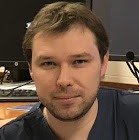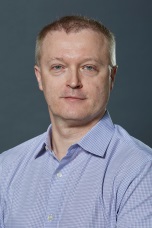
Perfilev Artem M.
FSBI Federal Neurosurgical Center, Novosibirsk, Russia
Title: The Relationship of the Emotional-Personal Status with the Life Quality Self-Assessment on the Brain Tumor Location
Submitted Date: 2018-08-07
Biography
Dr. Artem Perfilev has studied neurosurgery (residency) at the Department of Neurosurgery of Novosibirsk Research Institute of Traumatology and Orthopaedics from the 2009 to the 2011 and successfully completed these courses. In September 2012, Dr. Artem Perfilev began his career at the Federal Neurosurgical center Novosibirsk, in the Department of vascular neurosurgery, where he continues to work by present. Over this period of time he has shown a responsible attitude to his work and interest in scientific research. He has more than 40 scientific published works, participated in international and national conferences with oral and poster reports. His scientific interests are devoted to studying not only the problems of vascular neurosurgery, but also to a large extent the fundamental aspects of neurophysiology and neurooncology. Namely, research aimed at studying cognitive functions, quality of life and mental status in neurosurgical patients.
Abstract
IntroductionrnIt is well known that brain lesions of tumor cause a variety of cognitive process disorders and changes in the psycho-emotional status. However, studies aimed at the psychometric comparison of the indicators of cognitive functions and emotional regulation of behavior depending on the tumor location have only been started quite recently [1,4,7]. The interest in analyzing the role of neuroticism, a personality trait that reflects the level of individual emotional reactivity, is caused by the fact that it affects the subjective assessment of well-being [5], including among cancer patients [2]. Given that the medial prefrontal or dorsolateral cortex is considered as a structural correlate of neuroticism [3,6], we assumed that brain tumor in those cortex areas should lead to the disassociation of neuroticism and self-evaluation of the quality of life.rnrnMaterial and MethodsrnThe study involved 62 patients of the neurosurgical clinic (52.1±10.6 years, 37 women) (gr_P) and 40 healthy people (48.6±10.9 years, 29 women) who formed the control group (gr_C). The age, education, and share of men and women in the groups did not differ. All participants of the study were right-handed.rnThe criteria for including patients for psychometric testing were the absence of a gross neurologic deficit at the preoperative stage, compensation for somatic status, and tumor location: in the frontal or parietal divisions of the left (GR_LF and GR_LP) or right hemisphere (GR_PF and GR_PP) (Table 1).rnTo elucidate the peculiarities of cognitive functions, we used the IQ-test H. Eysenck. The EPQ method was used to determine neuroticism (N) [Eysenck H. et al., 1991] and the SF 36 questionnaire was used to assess the quality of life.rnrnResultsrnThe general group of patients (gr_P) is characterized by significantly lower values of all parameters except for neuroticism (N), in comparison with the control group (gr_C) ) (Table 2). The results of the correlation analysis of N, IQ, and indicators of creativity with QoLphys and QoLpsy for each subgroup from gr_P indicate that there is a positive relationship between QoLphys and IQ (0.56

Edward Kachur
Aleksa Cenic McMaster University, Canada
Title: Lumbar discectomy: a national survey of neurosurgeons over 10 years
Submitted Date: 2018-09-05
Biography
Biography Edward Kachur received his Bachelor of Science (B.Sc.) degree from the University of Toronto, followed by his Doctor of Medicine (M.D.) degree from the University of Western Ontario in 1996. He completed a neurosurgery residency in London, Ontario, Canada – University of Western Ontario, in 2002, receiving his Neurosurgery Fellowship (FRCSC) designation from the Royal College of Physicians and Surgeons of Canada in 2002. He completed a spine fellowship from Virginia Commonwealth University in 2003. He has been a neurosurgeon / spine surgeon at Hamilton Health Sciences, General Site (Hamilton, Ontario, Canada) from 2003 to the present. He is an Associate Professor at McMaster University (Hamilton, Ontario, Canada). His research interests focus on spinal disorders.
Abstract
Statement of the Problem: The purpose of our study was to ascertain neurosurgeons practices in the surgical management of one-level lumbar discectomies in the Canadian adult population and to determine any changes over a ten year period. Method: One-page questionnaire faxed to each Neurosurgeon in Canada in 2007 and the same questionnaire faxed and/or emailed to each Neurosurgeon in Canada in 2017. Findings: In 2007 112 completed surveys were returned – response rate 64% and 109 completed surveys were returned in 2017 – response rate 42%. Of the 13 questions asked regarding practice patterns 8 were statistically significantly different in 2017 vs. 2007 (p ≤ 0.05) and 5 were not statistically different. (See Table 1 and Figure 1) Conclusion: Our surveys have identified variations in practice patterns amongst Canadian neurosurgeons with respect to performing one-level lumbar discectomies. There have been changes over a 10 year period. In particular, patients are going home sooner and returning to their activities more quickly.
